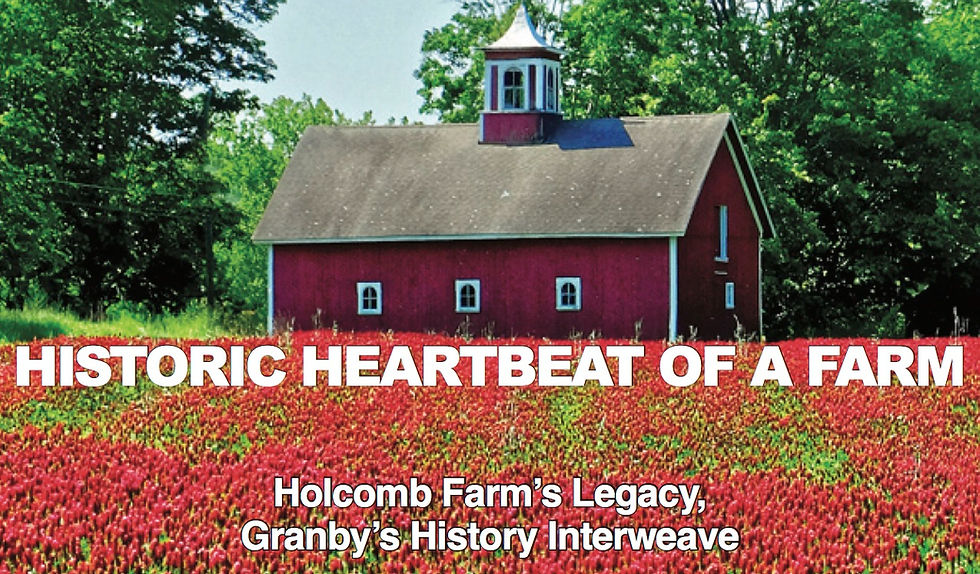Tunxis CC name traces to Indian legacy
- Today Magazine Online
- Oct 19, 2022
- 3 min read
Updated: Jul 12, 2023
• Tunxis Community College Honors Native History, Diversity
This article first appeared in the October 2022 edition of Today Magazine, our monthly publication
By Ethan Guo — Special to Today Magazine
THE TUNXIS INDIAN TRIBE was at one time the largest of the Farmington River Valley tribes.
The territory of the Tunxis sachemdom included the present-day towns of Avon, Berlin, Bristol, Burlington, Farmington, New Britain, Plainville, Southington and part of Wolcott, according to Melissa Lamar, director of marketing and public relations at Farmington-based Tunxis Community College.
The Tunxis name is derived from the word “Wuttankshau,” which roughly translates to “the point where the river bends.”
Like many other Native American tribes, the Tunxis tribe was greatly weakened after the arrival of the European settlers and their foreign diseases in the 1600s and 1700s, per historical and medical sources. According to Dartmouth College’s Occom Circle Project, by 1725 the once most populous tribe in the region was left with just 50 members.
Other tribes in the Farmington River Valley, also ravaged by disease and the encroaching English settlers, joined forces with the Tunxis tribe circa 1750 and formed a group known as the Farmington Indians, according to the Occom Project.
While the Farmington Indians were evangelized and lived peacefully among the settlers for several decades, their desire to regain control of their own land restarted hostilities.
The Tunxis name is derived from the word 'Wuttankshau' — which roughly translates to 'the point where the river bends'
When the settlers refused to return the Indians’ land, many of the Farmington Indians joined other tribes and moved elsewhere. By the late 1800s, the few who remained in the Farmington Valley had either emigrated or assimilated, leaving few remnants of the former Tunxis tribe.
About a century later, Tunxis Community College was chartered in 1969. Curiously, the name of the college was actually chosen prior to its location. Thus, it is unclear how impactful the history of the land was in naming the college.
“Tunxis librarians think the name may have been inspired by other Connecticut community colleges which had already formed with local tribal names or Native American words for their colleges,” says Lamar. “But there is no official documentation we can readily find to support this.”
Regardless of the original founding intentions, Tunxis continues to emphasize the importance of its Native American history to help transform students into world citizens who espouse diverse perspectives and contribute to society.
“The Native American courses at Tunxis were developed by a faculty member who had visited several Native American tribes in the Southwest United States,” says Lamar.
'Learning about their history, their culture, struggles, and where they are today provides important perspectives on our collective history as a country' — Tunxis CC rep Melissa Lamar
“Learning about their history, their culture, struggles, and where they are today provides important perspectives on our collective history as a country. Another important emphasis in these courses is community service — helping groups such as this in cleaning up their drinking water and documenting the aspects of their culture that they are losing with each generation.”
These Native American courses have become so popular among Tunxis students that, on occasion, individual students have traveled on their own to Southwest reservations and worked on projects with the tribes.
After the occupation of the English settlers in Connecticut, the Tunxis tribe faced a rapid decline, fading into near obscurity by the late 19th century.
However, with a college focused on embracing and celebrating diversity — through the work of many Tunxis Community College professors and students — this past is once again being rediscovered, celebrated and preserved for the future. +
• Exclusive Q&A with Tunxis CC official Melissa Lamar — click here
• Reporter Ethan Guo is an Avon resident and a senior at Loomis Chaffee School in Windsor









Comments